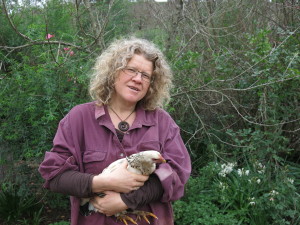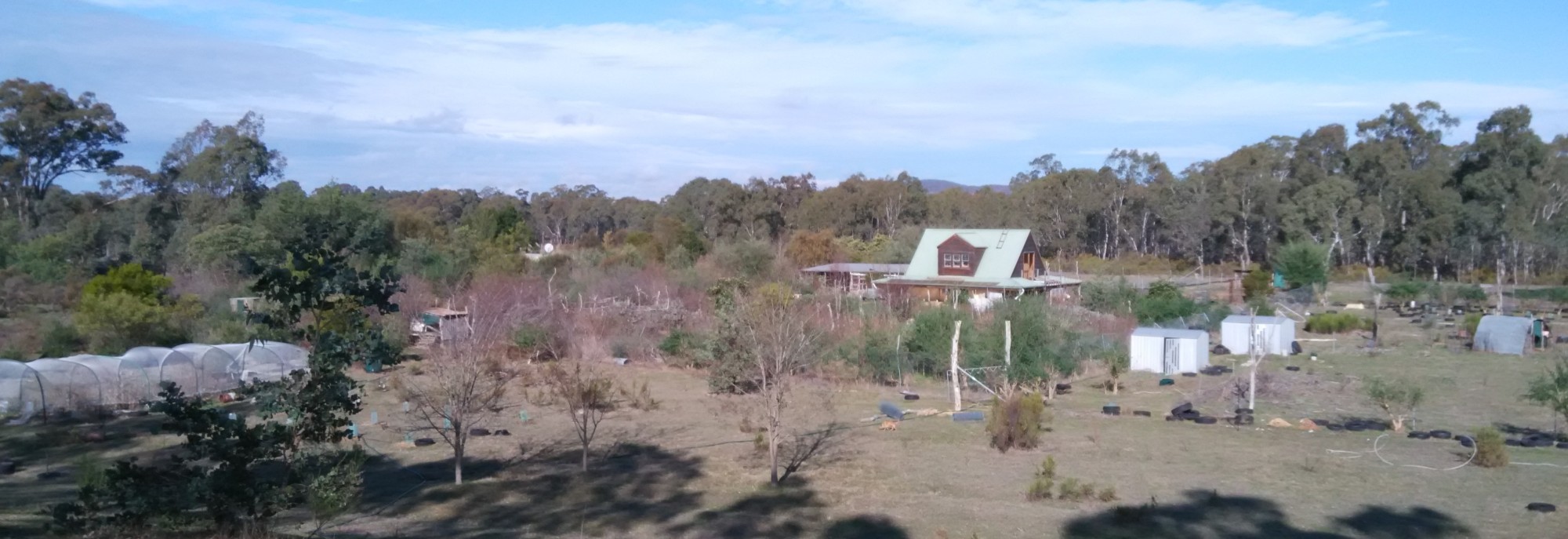 I first discovered permaculture* in 1994, after spending much of the previous few years protesting about the destruction of old-growth forests. Permaculture was a revelation for me – for the first time I saw a positive way forward, rather than being focused on the problems of the world.
I first discovered permaculture* in 1994, after spending much of the previous few years protesting about the destruction of old-growth forests. Permaculture was a revelation for me – for the first time I saw a positive way forward, rather than being focused on the problems of the world.
I did a Permaculture Design Course (PDC) that year and spent time growing food in a cement courtyard in a rented house in an inner-urban part of Melbourne – and dreaming of moving out of the city!
Although permaculture is just as relevant for urban dwellers as rural, I knew that city life was not for me. I purchased a 40 acre property near Heathcote in central Victoria in 1997 and it has been a work in progress ever since. It provides us with milk and dairy produce from our goats, fruit, meat and vegetables (although the supply of the latter is very low this year due to the lack of water…), as well as timber, firewood and a wonderful place to live.
Permaculture provides a win-win situation for me. I am doing something positive for the planet while at the same time appreciating the satisfaction that comes with growing food, working with animals, and not getting too caught up in the rat race of modern life. Sidestepping the pervasive multinational companies that control increasingly large aspects of our lives is both empowering and political – growing food is a powerful act of positive defiance!
I have been teaching permaculture since 2003 in various formats – my favourite being PDCs. I am also involved in Accredited Permaculture Training (APT), the nationally accredited suite of Certificate and Diploma courses in permaculture – an interesting exercise in working within a very bureaucratic system. See here for courses I am involved with this year.
I have a science background and am one of those nerdy people who quite enjoy reading academic papers. I majored in Zoology for my BSc degree and a few years ago went back to university to complete a Masters in Sustainable Agriculture. Part of the reason for undertaking the Masters was to see how much of what we talk about in permaculture has made it into the academic literature (answer: not much).
I also like long walks, spending time with animals, reading, writing, and harvesting and preserving home-grown food – and it goes without saying that I love teaching permaculture! Conversely, I don’t like being inside, wearing shoes or sitting at a desk.
I hope you enjoy reading my blog!
*for those asking ‘What is permaculture?’ – well, it’s complicated. Permaculture is a set of ideas and practices that guide us in designing sustainable human lives – including food, shelter and community structures. Permaculture works with, and takes inspiration from, natural patterns and systems, as well as traditional farming and living strategies from around the world. Food is critical to human existence, and therefore food growing is a very important part of permaculture, but permaculture isn’t just about growing organic food (despite the widespread assumption to the contrary).

